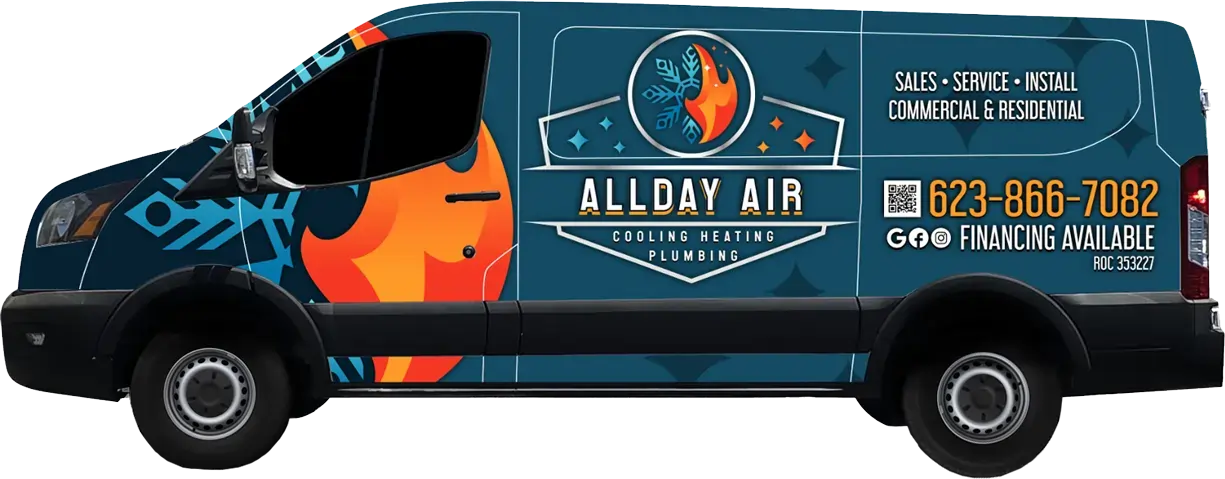How Weather Affects Your HVAC System
"*" indicates required fields
How Weather Affects Your HVAC System
Understanding the relationship between weather conditions and your HVAC system performance is crucial for maintaining comfort and efficiency throughout the year. As we provide HVAC Service and AC Service to our customers, we’ve observed firsthand how seasonal changes and extreme weather events can significantly impact heating and cooling equipment. Weather doesn’t just determine when you use your system; it directly affects how hard your equipment works, its energy consumption, and its overall lifespan.
Your HVAC system responds dynamically to outdoor conditions, constantly adjusting to maintain your desired indoor temperature. During extreme temperatures, whether scorching summers or freezing winters, your system experiences increased stress that can lead to premature wear, higher energy bills, and unexpected breakdowns. By understanding these weather-related impacts, you can take proactive steps to protect your investment and ensure reliable comfort year-round.
Summer Heat and Your Air Conditioning System
When temperatures soar above 90 degrees Fahrenheit, your air conditioning system faces its greatest challenge. The temperature differential between outdoor and indoor air directly correlates to how hard your AC must work. For every degree the outdoor temperature rises, your system consumes approximately 3-5% more energy to maintain the same indoor comfort level. During heat waves, when temperatures exceed 100 degrees for consecutive days, your air conditioner may run continuously, struggling to remove both heat and humidity from your home.
High humidity compounds the challenge, as your AC must work overtime to dehumidify the air while cooling it. When relative humidity exceeds 60%, your system expends additional energy removing moisture, which can increase operating costs by 20-30%. Our Air Conditioner Repair technicians frequently encounter systems overwhelmed by extreme summer conditions, resulting in frozen coils, compressor failures, and refrigerant leaks. Since AllDay Air was founded in 2016, we’ve helped countless customers navigate these summer challenges with preventive maintenance and timely repairs.
Winter Weather Challenges for Heating Systems
Cold weather presents unique challenges for heating systems, particularly when temperatures drop below freezing. Heat pumps, increasingly popular for their energy efficiency, lose effectiveness as temperatures fall below 40 degrees Fahrenheit. At 25 degrees, a heat pump’s efficiency can drop by 40%, forcing auxiliary heating elements to engage more frequently. This increased reliance on backup heating significantly raises energy consumption and utility costs during cold snaps.
For traditional furnaces, extreme cold means longer run times and increased fuel consumption. When arctic air masses bring sub-zero temperatures, your Heating Installation must overcome massive temperature differentials. A furnace maintaining 70 degrees indoors when it’s -10 degrees outside faces an 80-degree temperature gap, requiring substantial energy output. Ice storms pose additional risks, potentially damaging outdoor units, blocking ventilation systems, and causing power outages that can leave homes without heat during critical times.
Seasonal Transitions and System Stress
Spring and fall weather fluctuations create unique stresses on HVAC systems through rapid temperature swings. When temperatures vary by 30-40 degrees within a single day, your system may switch between heating and cooling modes multiple times. This constant cycling increases wear on components like contactors, capacitors, and fan motors. During these transitional seasons, we often see increased demand for Heating Service and Central Air Conditioning maintenance as systems struggle to adapt to changing conditions.
Protecting Your HVAC System from Weather Extremes
Weather-related protection strategies can significantly extend your HVAC system’s lifespan and maintain its efficiency. We recommend implementing these protective measures:
- Install surge protectors: Lightning strikes and power fluctuations during storms can damage sensitive electronic components in modern HVAC systems
- Maintain proper drainage: Ensure condensate lines remain clear to prevent water damage during humid conditions
- Clear debris regularly: Remove leaves, snow, and ice from outdoor units to maintain proper airflow
- Schedule seasonal maintenance: Professional inspections before summer and winter help identify weather-related wear before it causes failures
- Consider weatherproof covers: Protect outdoor units from hail, falling branches, and severe weather when not in use
At our company specializing in HVAC and plumbing services, we take pride in our commitment to excellence and customer satisfaction. With a team of highly skilled professionals, including seasoned technicians and innovative engineers, we ensure top-quality service in every project we undertake. Our AC company specializes in providing reliable, high-quality air conditioning services, including installation, maintenance, and repair for both residential and commercial customers. Understanding how weather affects your HVAC system empowers you to make informed decisions about maintenance, upgrades, and emergency preparedness. By partnering with experienced professionals who understand these weather-related challenges, you can ensure your system operates efficiently regardless of outdoor conditions, providing reliable comfort while minimizing energy costs and unexpected repairs throughout the year.
Schedule Service
"*" indicates required fields























